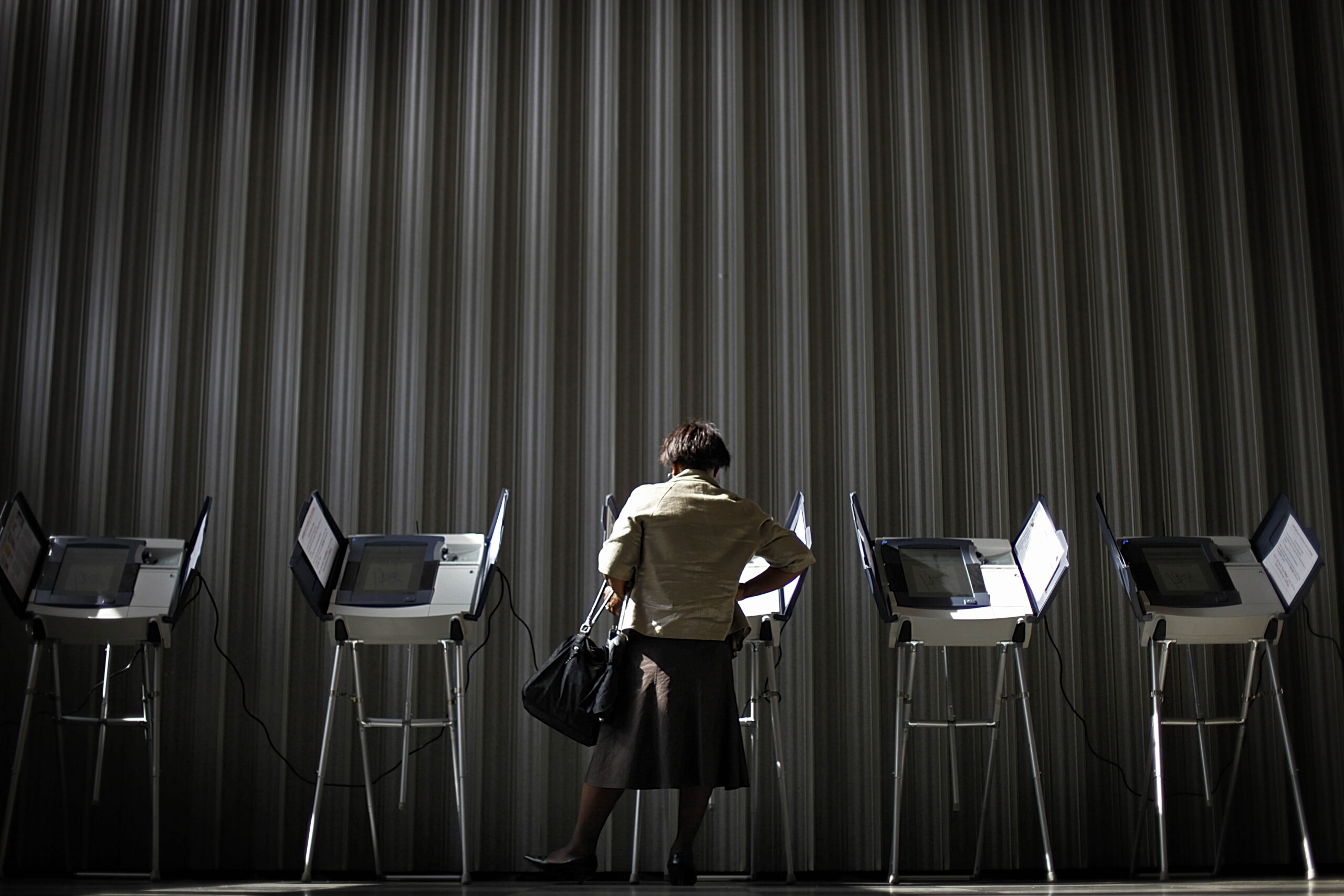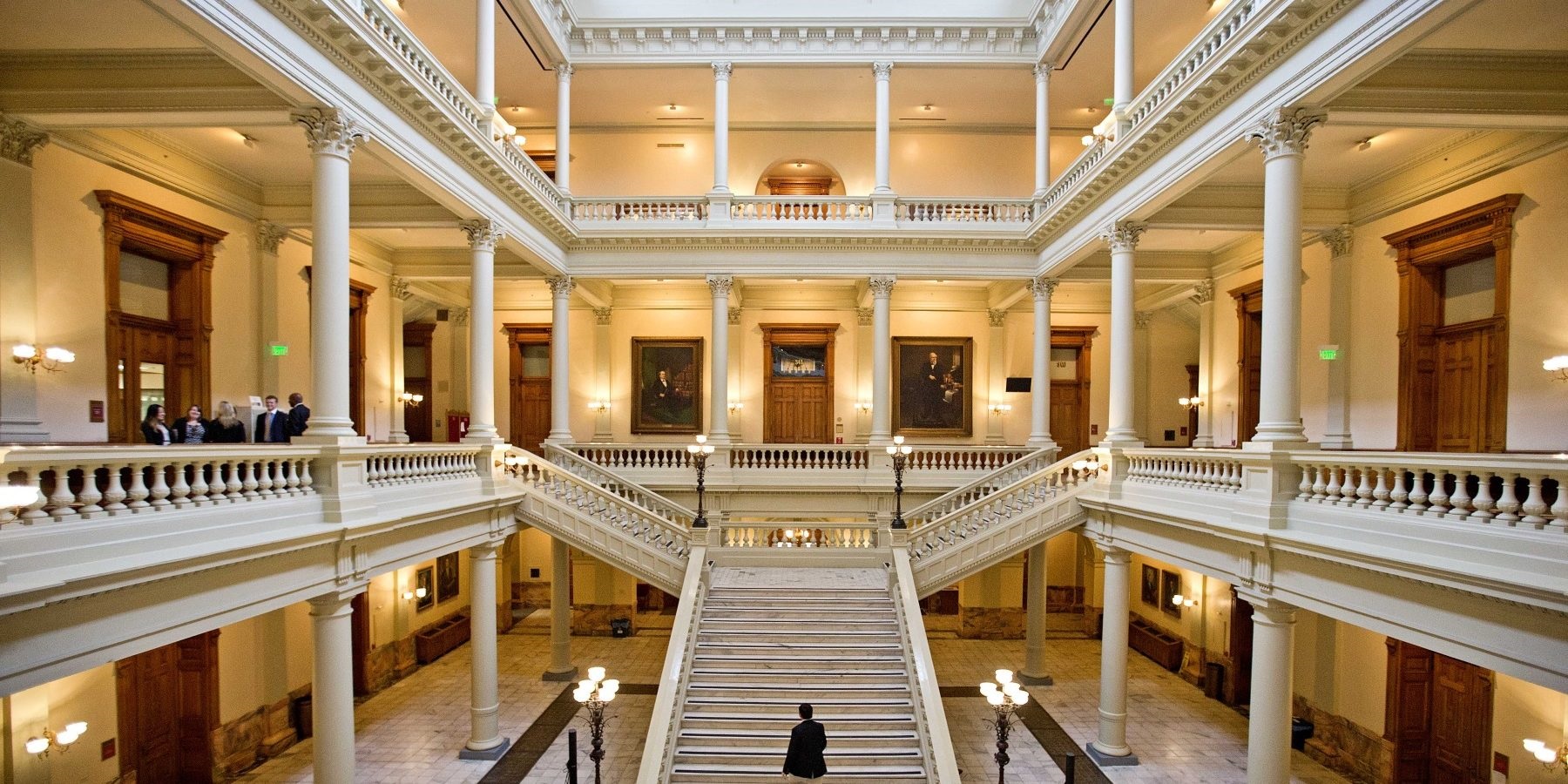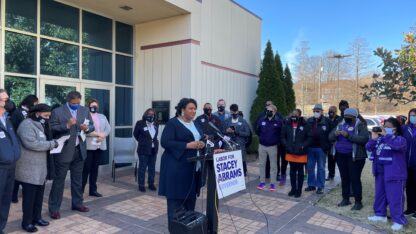Guide To Georgia’s 2018 Primary Election

An APM Reports and WABE investigation has found the uncounted votes in the 7th Congressional District may have helped the Republican incumbent secure a narrow victory.
David Goldman / Associated Press file
Georgia primary elections for governor, secretary of state and other state and congressional offices will be held May 22.
Georgians will also cast their votes for judicial offices in local courts, commissioners and educational board candidates.
Early voting is underway for registered voters at designated polling places through May 18.
On May 22, polls will be open from 7 a.m. to 7 p.m. You can find your precinct here.
Related: Check Out What’s On The Ballot In Georgia’s Primary Election >>
Georgia’s Key Election Dates
May 22: general primary election, nonpartisan general election and special election
July 24: runoffs for general primary election, nonpartisan general election, special elections and federal races
Nov. 6: general election and special election
Dec. 4: general election and special election runoff
Jan. 8, 2019: general election runoff for federal races
Related: Meet The Candidates In Georgia’s 2018 Governor Race >>
How The Primary Works
Primary election laws vary by state. Georgia Code Title 21 Chapter 2 lays the groundwork for the state’s general primary elections.
In Georgia, primary elections are open, meaning that anyone can vote without declaring a party, but voters will choose a ballot for either Republicans or Democrats. Other offices, like a justice for the Supreme Court of Georgia, will appear on both parties’ ballots because they are nonpartisan.
The winners of the primary election will face their opponents in the general election Nov. 6.
However, if no candidate wins a majority of the votes (more than 50 percent), the top two candidates will face each other in a runoff July 24. Then the winners of the runoff election will advance to the general election.
Kerwin Swint, director of the School of Government and International Affairs at Kennesaw State University, said he expects a runoff in many of the races this year, especially the race for the new Georgia governor.
Other Types Of Primaries
Other states have different rules for primary elections. Here are six different types of primaries, according to the National Conference of State Legislatures:
- Open: Anyone can vote without declaring a party.
- Closed: Only declared party members can vote.
- Partially closed: Parties can choose whether to allow voters who haven’t declared a party to vote.
- Partially open: Voters can cross party lines, but they must publicly declare their ballot choice. If they don’t publicly declare, then their choice may count as a form of registration with the party that they picked.
- Open to unaffiliated voters: Unaffiliated voters can choose to vote for whichever party they want, but a voter who is registered with a particular party can’t cross party lines.
- Top-two: All candidates are placed on the same ballot, and the two with the most votes get to advance to the general election. It doesn’t matter if both candidates are from the same party.








